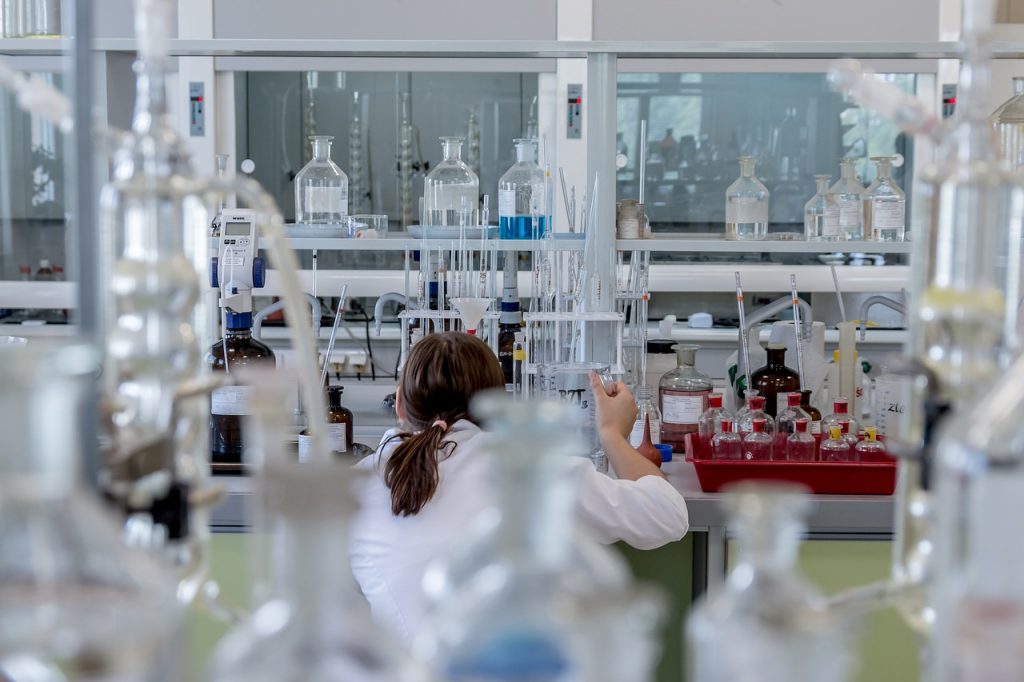EuroGalenus sponsors the Spanish VIII National Biotechnology Award.
29 March, 2021Executive search / headhunting – what it is all about?
17 January, 2022
If change and transformation are already permanent, there is an urgent need for a review of the pre- and post-pandemic competencies of executives, experts and scientists working in the innovative Life Sciences and Pharma sector on both sides of the Atlantic.
We are still going through the biggest health crisis of the last century and we observe that it is having an exponential impact on our daily lives as well as on organizations. Leadership is becoming more relevant as it has to manage a Brick & Click world, with an increasing dominance of virtuality. The Life Sciences sector is defined by constant innovation, research and development. Covid-19 accelerated the fourth industrial revolution, but that is no longer a novelty. What is new, however, is that technology has changed the goals of people and companies, which have not yet found the new path of identity and values.
Until today, when defining competencies that leaders must demonstrate to deliver effectiveness and sustainable growth to organizations, we did not hesitate to say “Vision”, which is still fundamental and an almost indispensable competence. However, things have changed, and continuous learning and resilience have gained importance. The rapidly evolving reality demands that we develop the ability to read the context and act effectively according to it. People are at the top of the podium of concerns, not technology.
CEOs have turned from Chief Executive Officers into Chief Emotions Officers, as Eduardo Braun argues in his book “People First”.
This indicates the power of human behavior within organizations, as well as emotions in corporate cultures, to multiply results and motivate of each of its members. The emergence of artificial intelligence (AI), the internet of things (IoT), data mining, cybersecurity, 5G and robotization, among others, is at the epicenter of our day-to-day lives, that entered our workspace without any warning. One only has to look at how short the development times for COVID/19 vaccines have been, with the help of new technologies (messenger RNA) or AI.
The way to cope with this reality has been to change the job profiles in companies, which has transformed the roles, drawing them almost into a hitherto unthinkable Darwinian adaptation. Continuous learning of the manager must be understood as an attitude of humility and constant curiosity: a great capacity for active listening and empathy towards others. We have learned that solidarity and commitment to society and organizations leads us to success.
It is not appropriate to stick to general stereotype that responds to biological evolution; today it is something much more universal. The “M” generation, that of metamorphosis and permanent mutation, puts us all today at the same starting point towards the future. Thus, the ability to change our values and the positive attitude towards acceptance and adaptation towards permanent change is what will guarantee our employability.
Hard work and excellence are not the only values that today’s organizations need, they also require: to receive and offer a work purpose, growth and work-life balance. There are many new skills behind the concept of learning. One is the ability to understand people’s deepest emotions and desires for self-improvement, responsible work and for their own satisfaction.
We have been talking about digital transformation for some time now and discovering that it is not a goal, but a path to follow. Unwittingly, we have all become “digital workers”. And on this path, the professional competence of leaders is the Vision, which we mentioned earlier, which implies having the ability to transmit it to all members of the organization, execute it, align and transform everyone order to form a true team oriented to high performance. An Agile organization.
Most of us come from an analog background that has been incorporating disruptive technologies like no previous generation has ever had to face. The vast majority of us are Hinge Generations and we can see that those born after the millennials will be predominantly digital. All of this means that we have become accustomed to the now BANI environment (B- Britte: fragile and brittle, A-Anxious, N- Non-linear, & I- Incomprehensible) and have developed a much higher tolerance for uncertainty than in the past.

The Covid-19 pandemic has opened our eyes to these situations, and remote work or teleworking has shown us that we can do business at a distance with people we have never met before, through innovative formats, platforms and applications, and in situations where we do not have the means to do so as well as all the information that we would like to have.
An example from our sector is Telemedicine and Remote Surgery. We are acquiring a digital mindset. When we refer to mindset, we are referring to the transition from a “fixed” mentality to a “growing” one. The fixed mindset is based on the belief that people’s qualities are predetermined and marked by genetics. According to this mindset, the competencies you have are the ones you have, and you cannot change them. In contrast, as Daniel Goleman taught us, the growth mindset is based on the idea that skills are something that can be learned, trained and developed. Although people vary in their skills and talents, everyone can change and improve through practice and experience. Family, formal education and work are three pillars for individual growth.
Digital innovation brings many benefits and new opportunities, but it also involves radical change, requiring fast action and a breach with what we know today. Uncertainty, sudden change, a sense of chaos, and anxiety will characterize the times we live in. However, at this hinge or “crossroad” moment, the most valued skills are still the emotional ones, not the digital or technical ones. Recruiting, training, motivating and aligning teams bounces with momentum in this non-stop digital transformation. And in the Life Sciences and Pharmaceuticals sector, which always carries innovation as its flagship, we are moving fast towards a Knowledge Culture, thanks to our Knowledge Workers: our employees.
Diversity, Equality and Inclusion.
There is another transformation that coexists with those already mentioned, bringing new values: that of Diversity, Equality and Inclusion, which contributes and enriches the structures of companies. Both my colleague Roberto and I are convinced practitioners in our daily work and fervent advocates considering candidates from all cultures, geographies, age, sexual orientation or beliefs, and this is reflected in our search processes. On the one hand, it is ethically mandatory in our profession, and there are plenty of studies that show that diverse organizations deliver better results because they serve more diverse clients better. It is obvious that, if we enrich the team with diverse perspectives and contributions, we expand our market much more effectively than if the entire staff had the same social and cultural background, the same education, etc. And from of all these transformations, our sector, Life Sciences and Pharma, appears as a pioneer on the podium.
